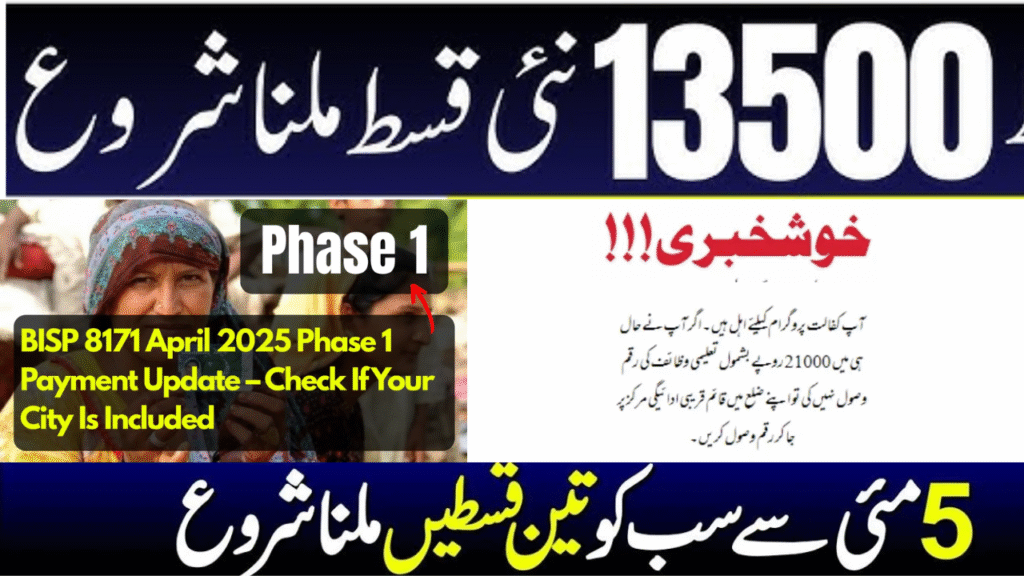The Benazir Income Support Programme (BISP) has officially launched the second phase of its 2025 disbursement plan, introducing key improvements aimed at enhancing financial relief for Pakistan’s low-income families.
Payment Amount Increased
As part of the federal government’s updated social protection strategy, the quarterly stipend under the Benazir Kafaalat initiative has been raised to PKR 13,500, up from PKR 10,500. This increase, implemented from January 2025, is intended to help beneficiaries better cope with the rising cost of living.
Speaking on the development, BISP Chairperson Senator Rubina Khalid acknowledged the government’s support: “This increase reflects our commitment to economic empowerment and social justice. We thank the Prime Minister for prioritizing financial inclusion for vulnerable citizens.”
More Families to Benefit
BISP has expanded its outreach by adding 700,000 new households to its beneficiary list through the National Socio-Economic Registry (NSER) update. This brings the total number of recipients under the Kafaalat Program to approximately 9.8 million families.
The new entries were identified through the 8171 registration portal and recent socioeconomic data collection efforts. Many of these families, previously on the waiting list, will begin receiving payments as early as this quarter.
Shift to Bank Transfers
In an effort to modernize its disbursement system, BISP has started transitioning payments from physical cash distribution to direct bank transfers. Under the new mechanism, recipients will receive their quarterly payments through partner banks, including HBL, UBL, Bank of Punjab, and National Bank of Pakistan.
The shift is designed to improve payment transparency and reduce fraud. Recipients can access funds via ATMs or at designated bank branches.
Registration and Documentation Process
To receive payments through a bank account, beneficiaries are required to link their CNIC to a valid bank account by visiting a BISP office before the submission deadline of January 10, 2025. Once verified, they will receive a confirmation message from the 8171 system.
For those unable to transition to bank-based payments, traditional disbursement through designated centers will remain in place for now.
Implementation Challenges
While the new system brings added convenience and security, it also poses challenges. Limited access to digital banking in rural areas and low levels of digital literacy among some beneficiaries may affect the transition process. Additionally, outreach efforts are needed to ensure that newly eligible families are aware of the changes.
To address these concerns, the government is considering launching a mobile application to help beneficiaries track payments and manage their information. Collaborations with private sector partners are also being explored to expand service delivery options in remote regions.
Conclusion
The latest phase of the BISP Kafaalat Program marks a significant milestone in Pakistan’s social welfare framework. By increasing financial support, expanding eligibility, and introducing digital payment methods, the program aims to provide a more secure and efficient safety net for millions of families. Continued efforts in awareness, infrastructure, and digital access will be crucial to the program’s long-term success.
